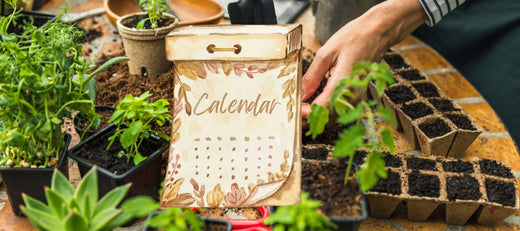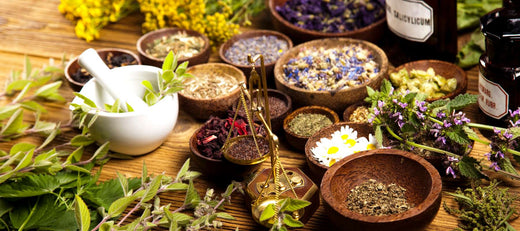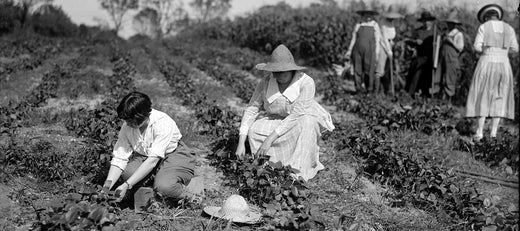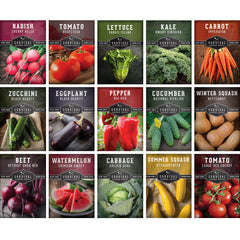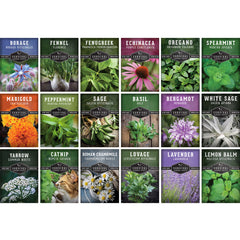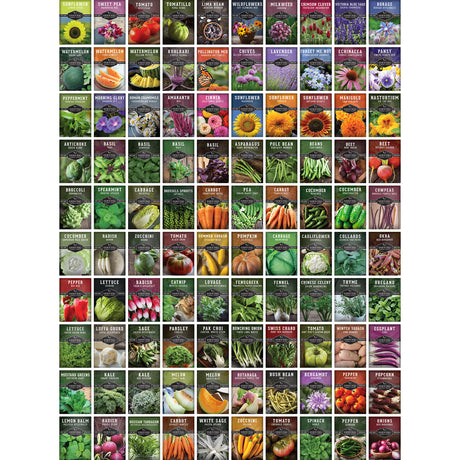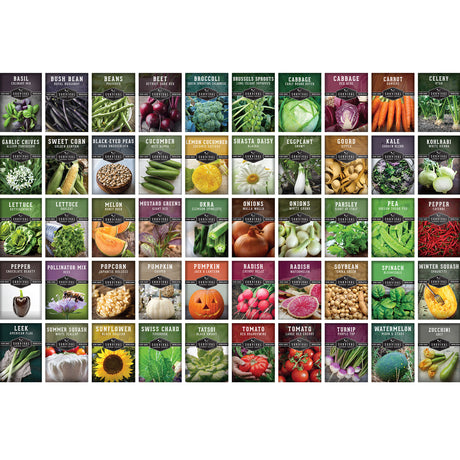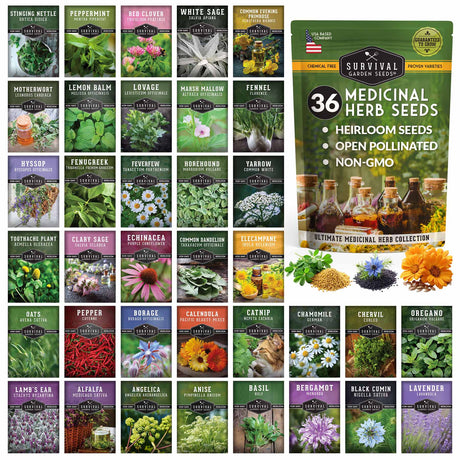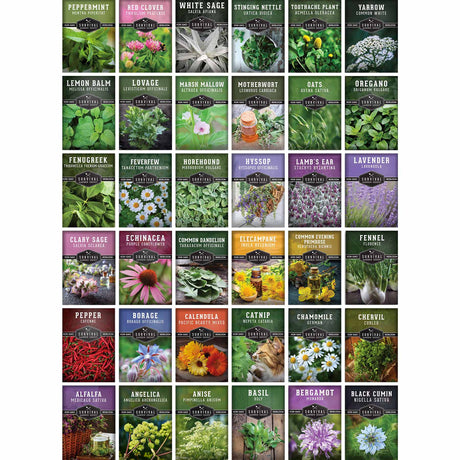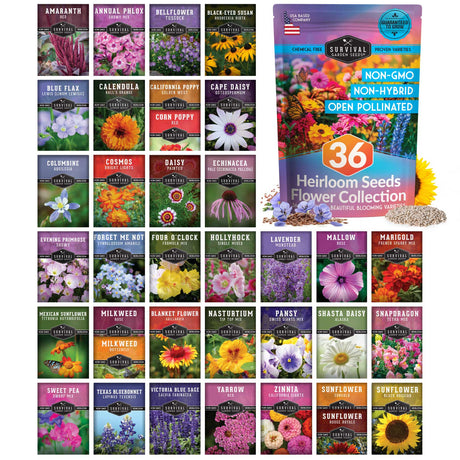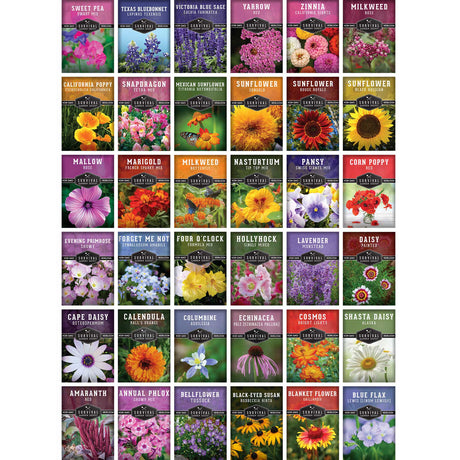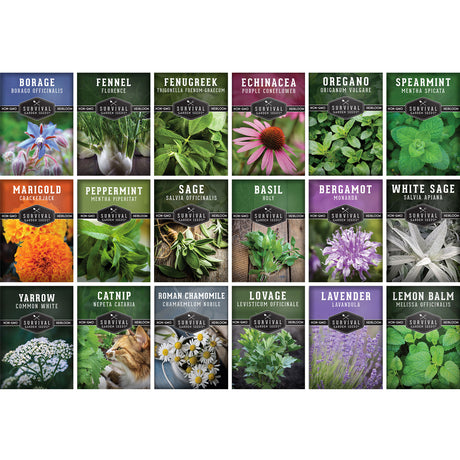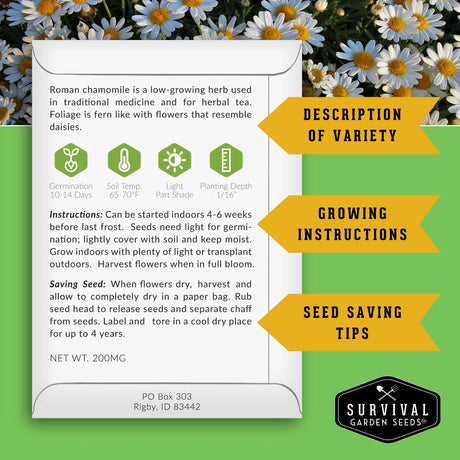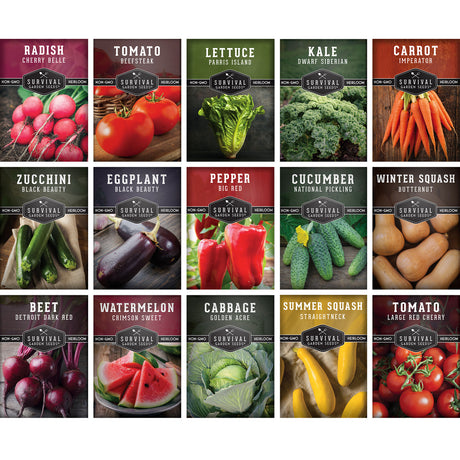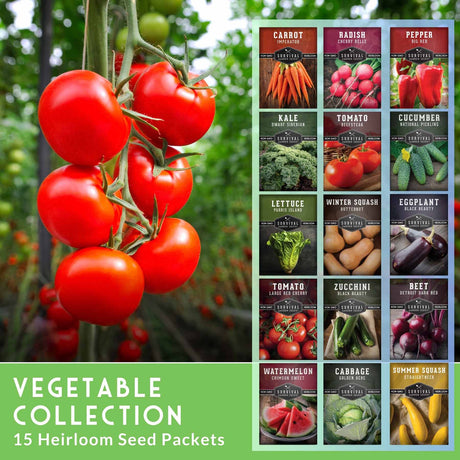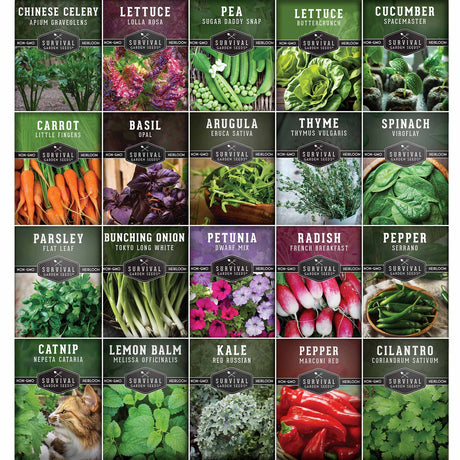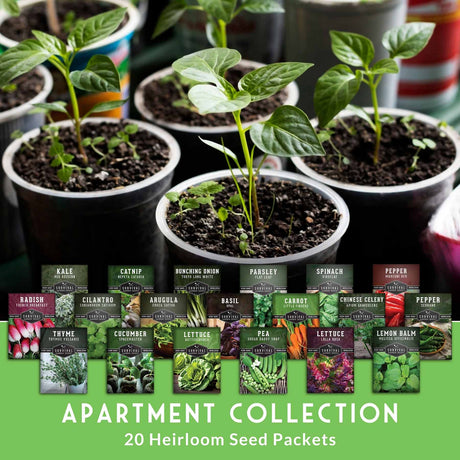Confused about all the terms to describe seeds? Let’s demystify all the gardening lingo so you can be confident about the seeds you buy.
Open-Pollinated Vs. Hybrid Seeds
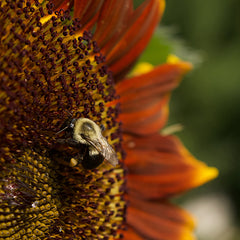
Open-pollinated seeds are pollinated through a natural process. This can be done by pollinators, including birds, bees, or even human hands. Some plants are self-pollinating or are pollinated by the wind. These seeds “breed true” - the seeds came from the natural pollination of the parent, and will continue to be genetically stable as long as it doesn’t cross-pollinate with another variety. (Some plants need to be isolated to prevent cross-pollination.)
Survival Garden Seeds are open-pollinated. There are seed-saving instructions on the back of every packet so you can perpetuate your harvest for future growing seasons.
Hybrid seeds, on the other hand, are the result of crossing two plants with specific traits to create a new, third variety. Farmers have hybridized seeds for thousands of years to create new crops that have the benefits of both varieties. The drawback of hybrid seeds is that they will not breed true. If you were to save the seeds from a hybrid plant for the following year, that seed would produce one of the parent plants instead of the hybrid variety. Hybrid seeds have to be bought new every year.
If a seed has F1 in its title or description, it’s a hybrid. F1 means “first generation.” Although hybrids can be quite useful for the home vegetable gardener, we want to ensure that the seeds we sell will breed true so you can create a reliable survival garden, year after year. That’s why we don’t sell hybrid varieties.
Heirloom Seeds

Heirloom seeds are a type of open-pollinated seed with a history, usually of 50 years or more. These are cultivars that were nurtured, selected, and passed down from generation to generation. These seeds come from old varieties that predate modern breeding techniques. Some have been grown for centuries or longer. Some, like our white scallop summer squash, are even pre-historic!
Most heirloom varieties are not well-suited to the techniques of commercial agriculture. They aren’t typically grown on a large scale. These seeds are important to maintaining the genetic biodiversity that has been harmed by modern agricultural practices like the widespread use of monoculture (the practice of growing only one type of plant in one particular area) and GMOs. Having a wide variety of different types of seeds with a lot of genetic diversity means a more stable, secure future for the world’s food stores. That’s why we are proud to carry seeds that are not only open-pollinated but also an heirloom.
GMO Vs. Non-GMO Seeds
GMO means “genetically modified organism” - any organism that has been changed using genetic engineering techniques. Genetic modification is not the same as crossbreeding, which is a natural process. When something is genetically modified, DNA from other plants or even animals is spliced in to create a new set of genes in a laboratory.

GMO seeds are used in commercial agriculture to create plants with unique traits that would be impossible or take a long time to develop otherwise. Using the shortcut of genetic modification can allow farmers to use some techniques that can damage the environment. For example, if a farmer grows a plant that is resistant to herbicides, they might just blast the entire field with toxic herbicides to prevent the spread of weeds.
If you want to avoid GMOs, you’ll be glad to know that all our seeds are non-GMO. The general public is not currently able to buy GMO seeds. However, you should still be aware of what your neighbors are growing, especially if they are commercial farmers. GMO seeds can sometimes cross-pollinate with nearby non-GMO crops.
There are so many options of seeds available, and you’ve got a lot to consider! Whether you’re buying seeds to save for the future or for growing now, it’s important to know exactly what you’re buying. Survival Garden Seeds are all non-GMO, open-pollinated, heirloom varieties chosen for their reliability and excellent germination rates so that you can grow your garden and feed your family for years to come.

